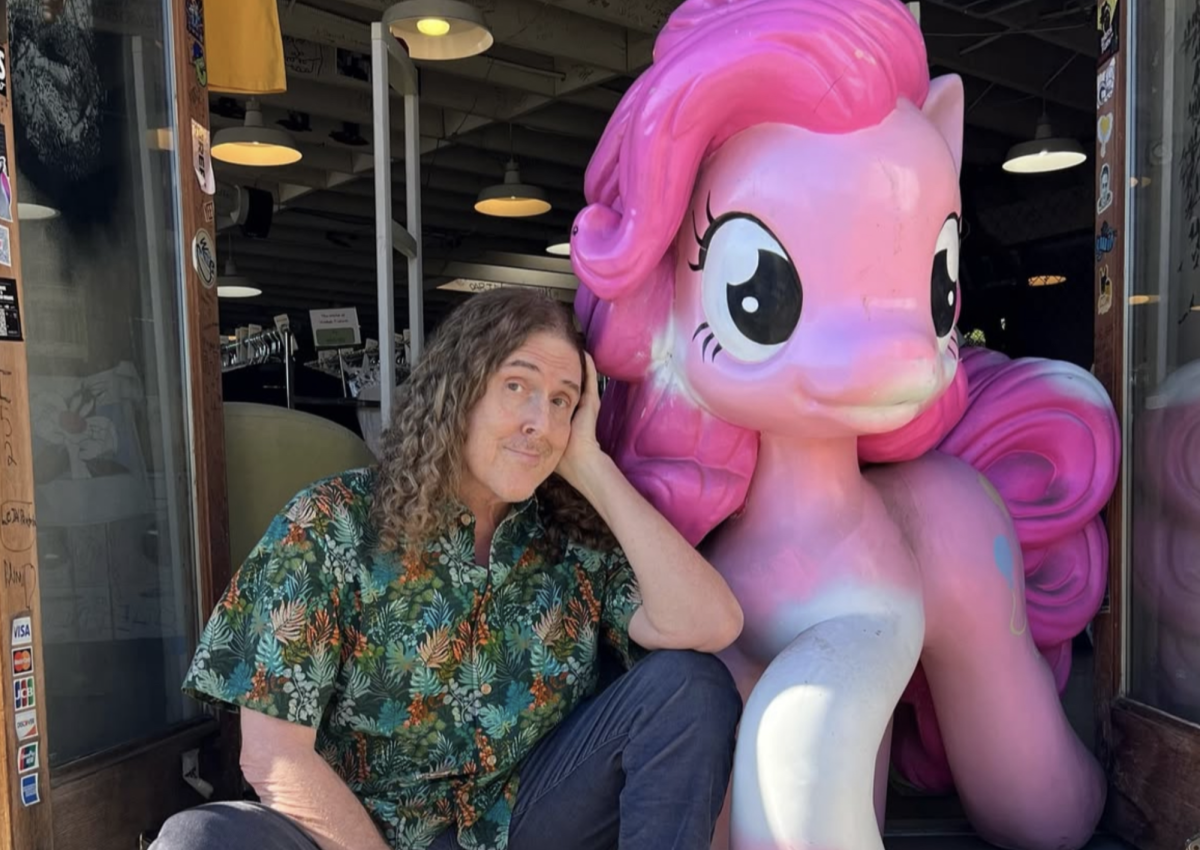
@alfredyankovic
It is hard to think of parody music without one name coming to the forefront of your mind: Weird Al. With his frizzy hair, loud shirts and always-present accordion, Alfred “Weird Al” Yankovic made it his life mission to poke fun at some of the biggest songs in pop history. His career began with recording a parody of “My Sharona” by The Knack in a bathroom stall and somehow evolved into four decades of Grammy Awards wins, platinum albums and cultural relevance. Weird Al is so synonymous with parody that he appears in all of the “Naked Gun” films. He was definitely never the coolest guy in the room, but that was part of his charm. Weird Al was cool because he never tried to be.
Weird Al didn’t just parody hit songs; he parodied the idea of fame itself. “Eat It” turned Michael Jackson’s boasting anthem into a joke about gluttony. “Like a Surgeon” reimagined sex symbol Madonna as a clumsy medical intern. “Amish Paradise” mocked Coolio’s gravitas while remaining oddly affectionate. Weird Al’s music videos played a huge role in the humor, mirroring MTV’s aesthetic with shot-for-shot recreations with a twist. However, his work wasn’t centered around criticism or cruelty, but joy. The punchline was never that the songs he was parodying were dumb, but rather that the hilarity lay in how much people loved the original music.
In a way, Weird Al’s career charted the rise of parody as a mainstream art form. The 1980s and 1990s were the perfect conditions for him to thrive. MTV provided a collective stage for music videos, radio rotation meant that everyone knew the same 10 songs and pop stars took themselves seriously enough to be mocked. Weird Al became a fixture of the cultural consciousness because everyone got the joke.
That kind of shared context doesn’t really exist anymore. As music has splintered, parody has lost its foundation. Weird Al’s last major hit, “White & Nerdy,” came out in 2006, a parody of Chamillionaire’s “Ridin.” That song worked because everyone had heard the original. His latest albums, like “Mandatory Fun,” are still sharp, but they didn’t resonate with the broader audience — not because they were artistically lacking — but because culture has become too fragmented for everyone to get the joke at the same time.
The internet also changed the pace of humor. Weird Al’s parodies were deliberate. They took time to write, record and produce. In the age of social media, parody is instant. A song can go viral and be parodied into oblivion in the blink of an eye. Everyone has the opportunity to be a Weird Al, but this has diluted the art form. When everyone is making a different joke, there is no longer a single punchline that unites us in laughter.
Weird Al’s humor depended on clear intention. It was obvious what was funny and why it was funny. More importantly, his music was always meant to be taken as a joke. Its appeal stemmed from a shared understanding that the songs were not to be taken seriously. However, the more recent laughed-at viral songs blur the line between sincere emotional expression and accidental comedy. Tracks like “Be Happy” by Dixie or “Karma” by JoJo Siwa became subjects of amusement not because they were meant to be funny but because their earnest tone and lack of lyrical depth clashed with audience expectations. The key difference between these newer viral songs and traditional parody music lies in intention.
If Weird Al feels like the last standing parody musician, it isn’t because no one is funny anymore. It is because the kind of cultural moment that made his mass success possible doesn’t really exist anymore. His songs thrived in an era of shared reference and patient irony. The humor that once solely belonged to a single accordion-wielding nerd has dissolved into the collective noise of the internet, where everyone can join in on the fun.
And maybe that’s the real lesson. Weird Al spent his whole career teaching us to laugh at the things we love. Now, we have learned that lesson a little too well and we no longer need him to be the vehicle of our laughter. Weird Al’s brand of parody music didn’t die; it just eventually outgrew him.